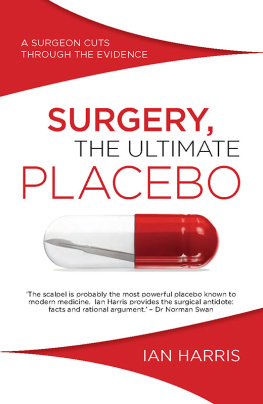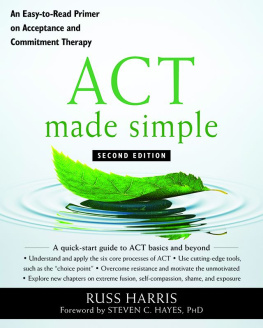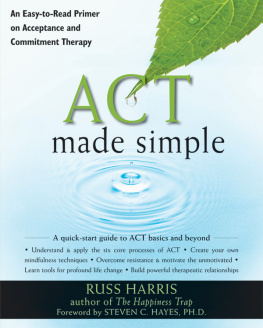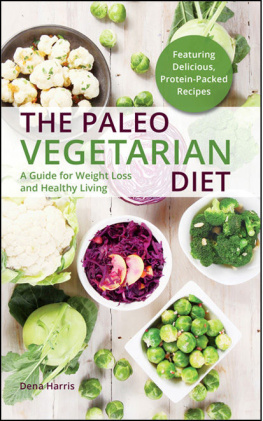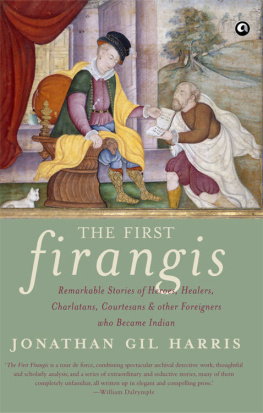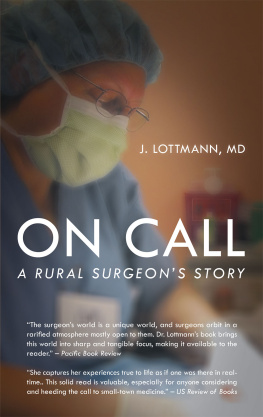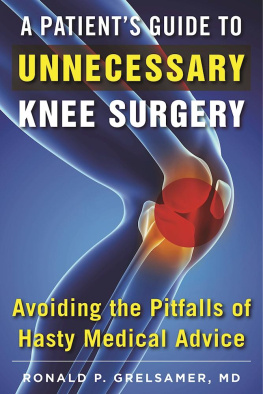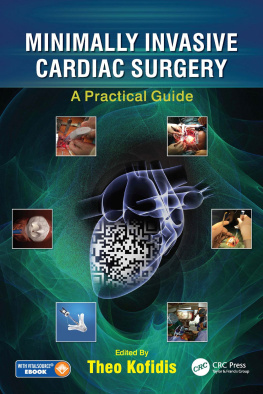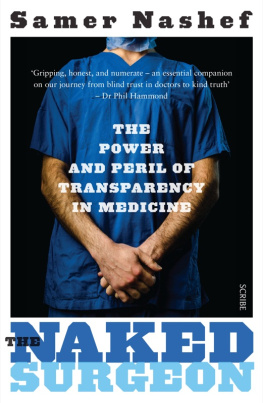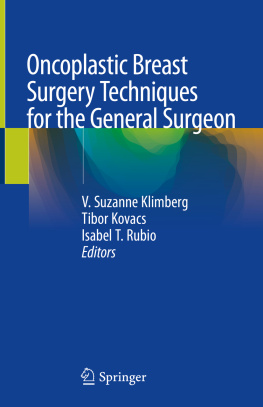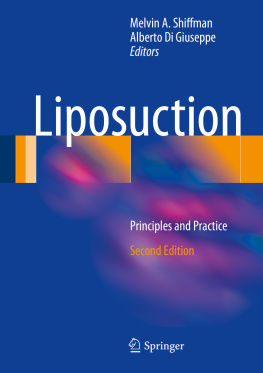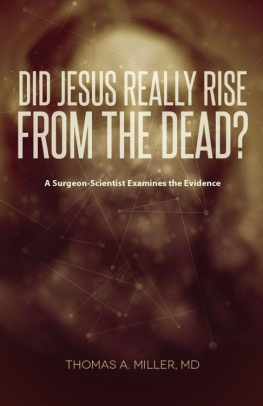SURGERY,
THE ULTIMATE
PLACEBO
PROFESSOR IAN HARRIS AM, MBBS, FRACS, FAOrthA, MMed (Clin Epi), PhD is an orthopaedic surgeon in clinical practice in Sydney. He is also an academic (professor of orthopaedic surgery), with higher degrees (Masters and PhD) in evidence-based medicine and surgery. He directs a research unit that focuses on the outcomes of surgery and has published and presented widely in the field of surgical outcomes.
SURGERY,
THE ULTIMATE
PLACEBO
A SURGEON CUTS THROUGH THE EVIDENCE
IAN HARRIS

A NewSouth book
Published by
NewSouth Publishing
University of New South Wales Press Ltd
University of New South Wales
Sydney NSW 2052
AUSTRALIA
newsouthpublishing.com
Ian Harris 2016
First published 2016
This book is copyright. Apart from any fair dealing for the purpose of private study, research, criticism or review, as permitted under the Copyright Act, no part of this book may be reproduced by any process without written permission. Inquiries should be addressed to the publisher.
National Library of Australia
Cataloguing-in-Publication entry
Creator: Harris, Ian Andrew, author.
Title: Surgery, the Ultimate Placebo: A surgeon cuts
through the evidence
ISBN: 9781742234571 (paperback)
9781742242309 (epub)
9781742247670 (epdf)
Subjects: Placebos (Medicine)
Surgery Psychological aspects.
Surgery Risk factors.
Medicine and psychology.
Dewey Number: 617
Cover design Xou Creative
All reasonable efforts were taken to obtain permission to use copyright material reproduced in this book, but in some cases copyright could not be traced. The author welcomes information in this regard.

CONTENTS
INTRODUCTION
THIS BOOK BUILDS a case for a placebo effect of surgery, something that is often underestimated when assessing the effectiveness of surgical procedures. This placebo effect is one of the factors contributing to the overestimation of the true effectiveness of surgery.
The aim of the book is to inform people, medical and non-medical, about the facts relating to the true effect of many of the surgical procedures performed today and in the past, and to provide a counter to the assumptions that any new operation must be better than the old one; that complexity in surgery is rewarded by increased effectiveness; and that a doctor would not recommend an operation unless it was effective and in the best interests of the patient. But to ensure that you do not take these comments the wrong way, some clarification is in order.
I am not suggesting that all surgery is ineffective or harmful. I am a surgeon and I spend a considerable part of my working life performing surgery. I am, however, a fairly conservative surgeon and tend not to operate when there is doubt about the balance of risks and benefits of a procedure. I rarely regret advising patients against surgery, and I am frequently surprised at how well the body repairs and adjusts itself without surgical intervention. Just as frequently, I see patients who have had questionable operations that have gone wrong, often resulting in the patient being worse off than they would have been without the surgery. It is fair to say that I am sceptical of many of the claims of surgery, because to be sceptical is to be scientific, and because scientific inquiry so often shows the effectiveness of many treatments to be less than initially claimed. In other words, I am sceptical because it is scientific, but also because my scepticism is so often rewarded.
Also, I am not suggesting that surgeons are recommending operations knowing that the potential risks outweigh the potential benefits. Largely, surgeons believe that they are doing the right thing, but often they are not aware of the strength (or weakness) of the supporting evidence or, what is more often the case, there is simply no substantial or convincing scientific evidence available, leaving them to rely on judgments based on their own perception. Without good scientific evidence, surgeons perceive the procedures they recommend to be effective, or they assume that they are effective otherwise their colleagues wouldnt be doing them, right? Put simply, a lack of evidence allows surgeons to do procedures that have always been done, those that their mentors taught them to do, to do what they think works, and to simply do what everyone else is doing. It is very hard to get into trouble if you are doing what is common practice and what has traditionally been done. My argument is that relying on tradition and unsupported perception frequently leads to an incorrect assessment of the effectiveness of the treatment, and is therefore not good enough.
I know this because I have learned it the hard way. When I started training and then practicing as a surgeon, decision making was relatively easy; paradoxically, the more you know, the harder it gets. This is because a conflict develops between what you understand to be true, based on scientific research, on the one hand, and what you observe, what you were taught, and what everyone else is doing on the other.
I have always been impressed by the scientific debunking of non-scientific beliefs. I remember many years ago, seeing a television program where two wellknown sceptics (James Randi and Dick Smith) showed water diviners to be no better than chance at detecting water in underground pipes, constructed as part of an experiment. The water diviners felt that they had been about 90 per cent correct, but were only just over 10 per cent correct, in picking water from one of ten pipes.
While I loved the scientific method used, I was fascinated by the reaction of the water diviners, who claimed interference from underground magnets and other things, despite being able to detect water in the pipes in prior, open label (unblinded) tests. Water diviners, using forked sticks or other devices, had been finding water pretty successfully for generations, and relied on tradition and observation to justify what they knew: that water divining was a good way of finding water. The fact that you could find water just about anywhere if you dug deep enough was not considered. They were just doing what they had always done and it worked they were finding water. To them, if science showed water divining to be ineffective, it meant that there was something wrong with the experiment; the science was wrong.
I started my career like the water diviners: doing what everyone else was doing and what I was taught to do. And I was happy. And I thought my patients were happy, and most of them probably were. I was finding water, so I didnt see much point in questioning the methods.
I started doing my own small-scale research (randomised trials comparing two treatments) to fill some gaps in the evidence, but soon became frustrated with my poor understanding of the scientific method. I was jealous of those who could critically appraise scientific studies. I didnt even know there was good and bad science, let alone possess the ability to be able to distinguish between the two. I set out to obtain that knowledge, and in doing so I quickly realised that that the scientific method (so called evidence-based medicine) was the only way of reliably knowing things that there were significant flaws in relying on observation and tradition.
In short, I realised that the kinds of tests that were applied to the water diviners properly conducted scientific experiments needed to be applied to surgery, and we needed to adjust our thinking so that we didnt react like the water diviners when we were shown the evidence. If I was a water diviner, I would be hanging up my divining rod.
Next page
